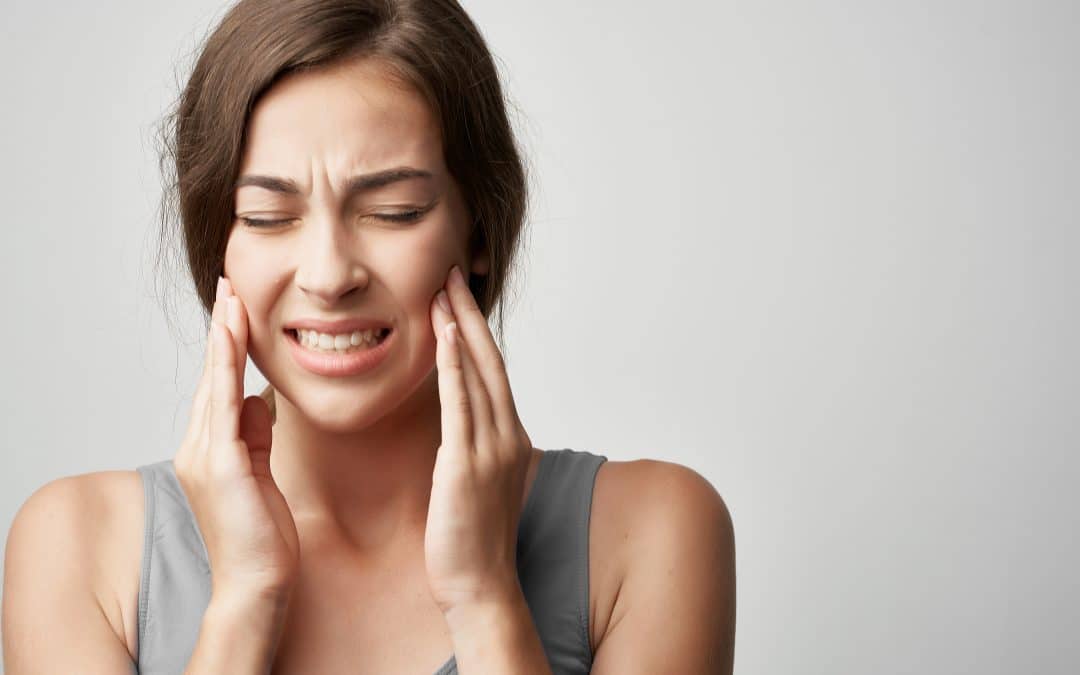Grinding your teeth can cause more problems than you may be aware of. You may have bruxism if you grind your teeth unconsciously while sleeping or during the day. Learn more about bruxism, its symptoms, and how we treat it at Smile Solutions of Maine in Waterville and Winthrop, Maine.
Overview of Bruxism
Bruxism is the condition of grinding or clenching your teeth when you are not chewing. It often happens at night, but people may also find themselves doing it during the daytime.
Signs of Bruxism
Not everyone with this condition knows that they grind or clench their teeth. Some signs that you may have bruxism include:
- Waking up with a headache
- Waking up with jaw or ear pain
- Disrupted sleep
- Sensitive teeth
- Chipped or cracked teeth
- Worn-out tooth enamel, revealing yellow dentin
- A tense jaw or facial pain
Some of these signs may be related to other conditions, so discussing them with your dentist is always important.
What Causes Bruxism?
Bruxism can be caused by:
- An abnormal bite. Misaligned teeth can cause bruxism. Children sometimes have bruxism as their teeth are growing and changing. The condition often resolves when the child’s teeth reach their proper alignment.
- Missing teeth. When teeth are missing, your bite changes, which can cause bruxism.
- Crooked teeth. Like missing teeth, if your teeth are crooked, your bite is probably not aligned right, which can cause bruxism.
- Stress and anxiety. Too much stress can cause you to clench your teeth or grind them in anger and frustration, both during the day and at night.
Other causes of bruxism include:
- Mental health conditions that produce more stress and anxiety.
- Neurological conditions such as Parkinson’s disease can cause sleep movements.
- Antidepressants, including Fluoxetine and Sertraline, may result in a side effect of bruxism.
- Sleep disorders such as obstructive sleep apnea disturb your sleep and can result in bruxism as well.
Bruxism Treatments
Because the causes of bruxism vary, the treatment plan for one patient’s condition could be quite different from the treatment plan for another person. At Smile Solutions of Maine, we examine your mouth closely and ask you pertinent questions to determine the actual cause of your bruxism. Then, we devise a personalized plan that will work effectively for you.
Common treatment options for bruxism and other TMJ disorders include:
- Nightguards. A nightguard, or occlusal splint, is a flexible rubber or plastic device specially tailored for your mouth. You place it inside your mouth at night to bear the weight of teeth grinding and clenching, saving your teeth from further damage.
- Equilibration of the teeth. If your teeth are crooked, missing, or your bite is misaligned, we can fix that using different tooth restoration techniques. We can replace missing teeth with implants, straighten crooked teeth with braces or clear aligners, and change the shape of teeth using tooth bonding or dental crowns.
- Treatment of underlying symptoms of bruxism. Sometimes, the root cause of bruxism results from a different issue, such as anxiety. We can’t treat anxiety at a dental office, but we can help you understand what might be the underlying cause so that you can seek treatment elsewhere.
What Happens if You Don’t Treat Bruxism?
If you leave bruxism untreated, you could have more problems down the road. Continuous grinding and clenching of your teeth can wear them out and cause tooth breakage or sensitivity. You could also have temporomandibular joint and muscle problems, which means you may need TMJ treatments. Chronic grinding leads to worse tension headaches and jaw pain. Successful treatment results in better sleep, less pain, a healthy smile, and better overall health.
Get Examined for Bruxism in Waterville or Winthrop, Maine
Tell your dentist if you have any signs of daytime or sleep bruxism. We want to help alleviate discomfort, save your teeth from damage, and prevent further problems. Schedule your appointment at one of our offices today, so we can carefully examine your mouth and teeth to determine which treatment plan is right for you.

